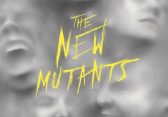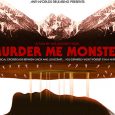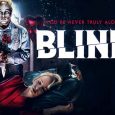First published in 1974, Carrie was Stephen King’s first novel and was almost instantly snapped up by movie studios who were impressed by the content. Brian De Palma, who later went onto Scarface and The Untouchables fame, took directing duties and Larry Cohen (the man who also wrote 3 more scripts of Stephen King’s works; It, The Tommyknockers and an episode of Nightmares & Dreamscapes) penning the script, the duo created one of the most faithful adaptations of all time, with countless memorable scenes and a character study of such a high calibre that it has seldom been surpassed.
Carrie White (Sissy Spacek) is an outcast at school. She has no friends, is ridiculed constantly by the “popular” crowd and, in some of the most controversial, shocking opening scenes to a movie that still shock today, is laughed at when she has her first period during a shower after gym class. But Carrie White is no ordinary girl: over time, she discovers that she has telekinetic powers, those of which get stronger the more she learns to control them. In the wake of the shower incident, one of the girls, Sue Snell (Amy Irving), persuades her boyfriend Tommy Ross (William Katt) to take Carrie to the Senior Prom. Meanwhile, the ‘leader’ and girl who bullies Carrie the most, Chris Hargensen, is banned from attending said Prom. This doesn’t phase her though, and she plots to embarrass Carrie in front of the entire school. Unaware of Carrie’s abilities, Chris continues to plan with her boyfriend Billy Nolan (a very young John Travolta) only to discover that it is the victim will have the last laugh…
 If you’ve seen this, it’s no surprise to learn that Sissy Spacek was nominated for Best Actress Oscar for her role as the titular character. Her emotions are raw and powerful; in the first half, her timid nature appears genuine. It takes talent to make a convincing transition of personality that Spacek so easily achieves: the second half of carnage is terrifying, primarily due to her shift in character. Whilst most of the credit goes to her, each and every cast member plays their part in making this memorable. Coming a close second is Carrie’s mentally unstable Christian fundamentalist mother, played by Piper Laurie,(this role earned her an Oscar nod but she lost to Beatrice Straight for her 10 minute appearance in Network), who contributes to the abuse of her daughter just as much as the girls at her school do. The rest of the supporting cast are equally brilliant, with John Travolta exhibiting early signs of his talent and bringing a darkly comedic aspect to the film.
If you’ve seen this, it’s no surprise to learn that Sissy Spacek was nominated for Best Actress Oscar for her role as the titular character. Her emotions are raw and powerful; in the first half, her timid nature appears genuine. It takes talent to make a convincing transition of personality that Spacek so easily achieves: the second half of carnage is terrifying, primarily due to her shift in character. Whilst most of the credit goes to her, each and every cast member plays their part in making this memorable. Coming a close second is Carrie’s mentally unstable Christian fundamentalist mother, played by Piper Laurie,(this role earned her an Oscar nod but she lost to Beatrice Straight for her 10 minute appearance in Network), who contributes to the abuse of her daughter just as much as the girls at her school do. The rest of the supporting cast are equally brilliant, with John Travolta exhibiting early signs of his talent and bringing a darkly comedic aspect to the film.
The score is sublime, and lovingly pays tribute to one of the first slasher movies of all time, Alfred Hitchcock’s Psycho; whenever Carrie is about to use her powers, the shrieking violins abrubtly assault the viewers ears. To further the homage, De Palma opted to name the school “Bates High School”, after the lead character Norman Bates. As much as this has references to Hitchcock, De Palma adds his own directing style, especially in the iconic prom scene. The looming close ups of the students as they are attacked adds a frantic nature to the sequence, and much, like the personality of Carrie, it’s a far cry from the style we saw at the opening scenes. The prominent use of red in the final scenes is expected, but is still unbelievably effective.
If there is anything negative to be said, it’s that some scenes do drag on for longer than necessary and this can only be put down to padding out the runtime, without rushing to the bloodfilled final scenes.
If you’ve read the book, you’ll know the most glaring and obvious change is the ending. But much like in the Lord of the Rings, the altered finale wraps everything nicely, even if it does angers the die-hard fans. Even though it’s a little dated in terms of effects and décor, Carrie will forever stand the test of time as a horror classic and one of the best adaptations of any book, period.


























